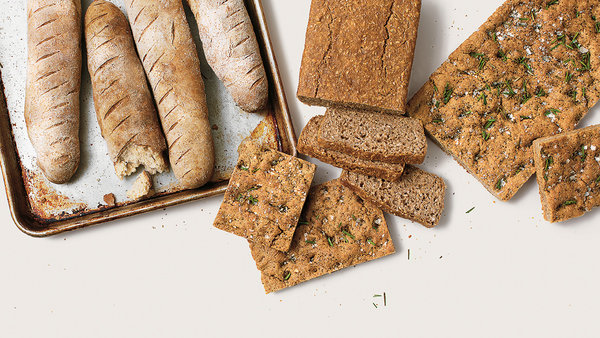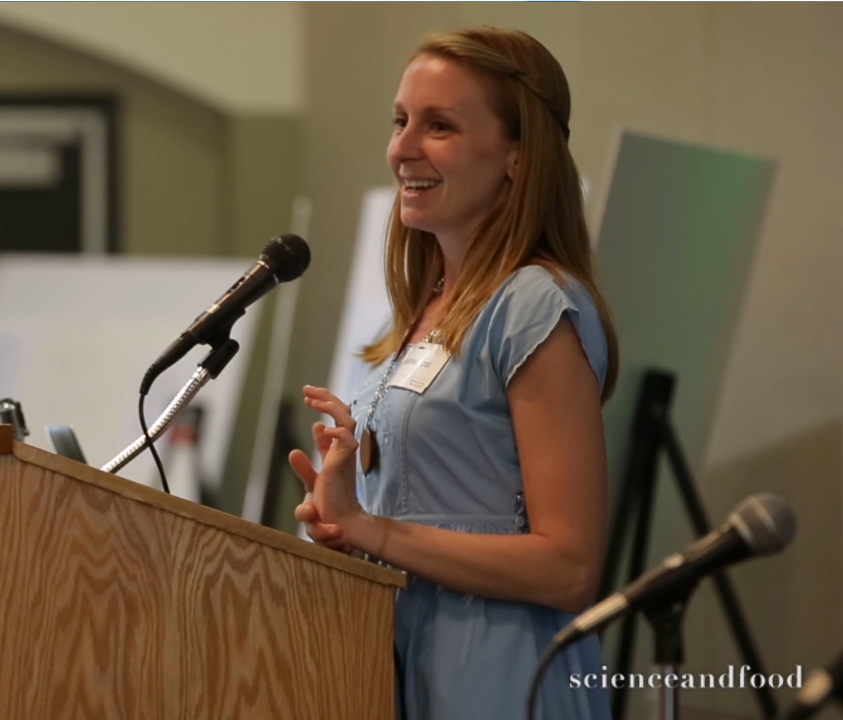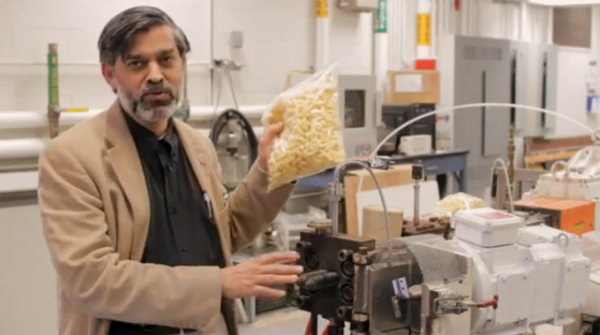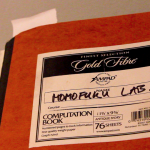Daniel Felder
Daniel Felder is the Head of Research and Development at the Momofuku Culinary Lab. Dan is originally from Roxbury, Connecticut, and began working in restaurants at the age of eighteen while he was studying at Union College in Saratoga Springs, New York. He moved to New York City and joined the Momofuku team in 2008 at Noodle Bar and Ko, and now at the Momofuku Culinary Lab.

Photo courtesy of Gabriele Stabile
- What hooked you on cooking?
- Both my parents are quite good home cooks, and let me cook with them from a really early age, sitting at the counter watching and then helping as I got older. My great-aunt is an amazing home cook, and still lives in Rome. She had an impact on me and my cousins, as four of us now work in the food industry. Learning from her was a challenge; she wouldn’t give up her secrets unless you earned them, usually by doing some unrelated task for an extended period of time. Once I got my food in the door of professional kitchens, it was a similar scenario. You have to earn knowledge. That’s the slippery slope for me; learning something new in the kitchen repeatedly opens my eyes to how much more there is to learn.
- The coolest example of science in your food?
- One of the coolest examples is probably the ongoing projects at the Culinary Lab based around microbes and fermentation. The heart of this process for us was really the application of scientific methodology. Applying scientific structure and procedures to how we pursue a question has actually given us a lot of freedom in how we experiment. By breaking down and understanding the mechanics of a process we can’t see with the naked eye, we can start with a grounded hypothesis and begin manipulating variables until we get to where we want to be. Our miso is a good example of this process.
- The food you find most fascinating?
- I am really fascinated by starches, grains, root vegetables, etc. I realize it is pretty familiar and basic territory, but I think the bio-technological capacity of rice and grains, for example, is really incredible. We have only scratched the surface of what we can do with it. There has been a lot of research with corn and different starches for industrial purposes and alcohol, but as cooks, I think we have so much more to discover.
- What scientific concept–food related or otherwise–do you find most fascinating?
- • Why starburst candies cause extreme salivation.
(More of a question than a concept—potential student project?)
• Enzymes.
• Metabolic pathways. Specifically, how the body metabolizes sugars and amino acids.
• Hydrolysis of protein.
• Correlation of fermentation to larger biological processes.
- Your best example of a food that is better because of science?
- Italian salad dressing.
- How do you think science will impact your world of food in the next 5 years?
- Not to be gross, but the idea of “out of body digestion” is really interesting to me. Can we extrapolate and apply the mechanism of digestive processes in the natural world as catalysts in the kitchen? Fermentation is a familiar example of this idea, but I believe we can take it a bit further by looking at more diverse biological processes, and hopefully reveal new nutritive resources (hopefully delicious ones) as a result.
As a corollary, the things Alex Atala, Noma, and the Nordic Food Lab have found by exploring potential food sources in their respective environments is both very interesting and indicative of what is in the immediate future for science and food. In our lab, we are looking at how we can extend this idea to process as well. ow can we disinter biological processes from the natural world and bring them into the kitchen?
- One kitchen tool you could not live without?
- Rene and Lars gave the perfect answer: spoon. I can’t compete with that. If I had to pick one for the Momofuku Culinary Lab, I would go with a Dremel.
- Five things most likely to be found in your fridge?
- • Fruit and veggies
• Good Seasonings Italian salad dressing
(the one in the packets that comes with the cruet)
• An excess of condiments
• Olives and pickles
• Budweiser
- Your all-time favorite ingredient?
- That’s hard to say. Butter, maybe? Bread?
- Favorite cookbook?
- Also hard to choose. Right now we have a copy of Ben Shewry’s new book, Origin: The Food of Ben Shewry, in the Culinary Lab. It rules.
- Your standard breakfast?
- I don’t really eat breakfast, but, if I make it on the weekend, it errs on the English breakfast side of things: poached eggs, tinned beans, potato, tomato, sometimes a breakfast meat. Conversely, I am also a sucker for huevos rancheros.




